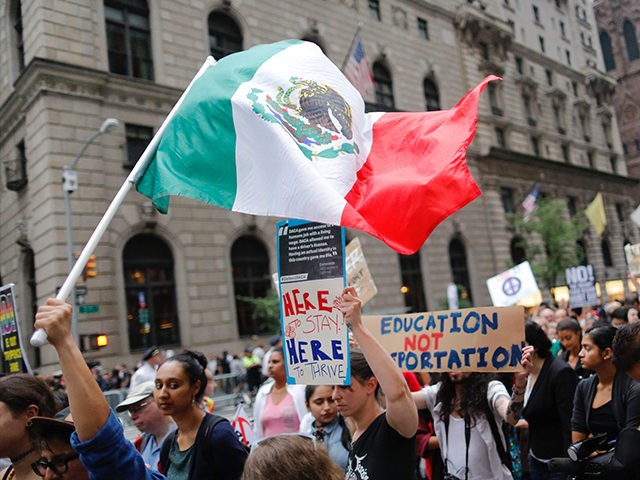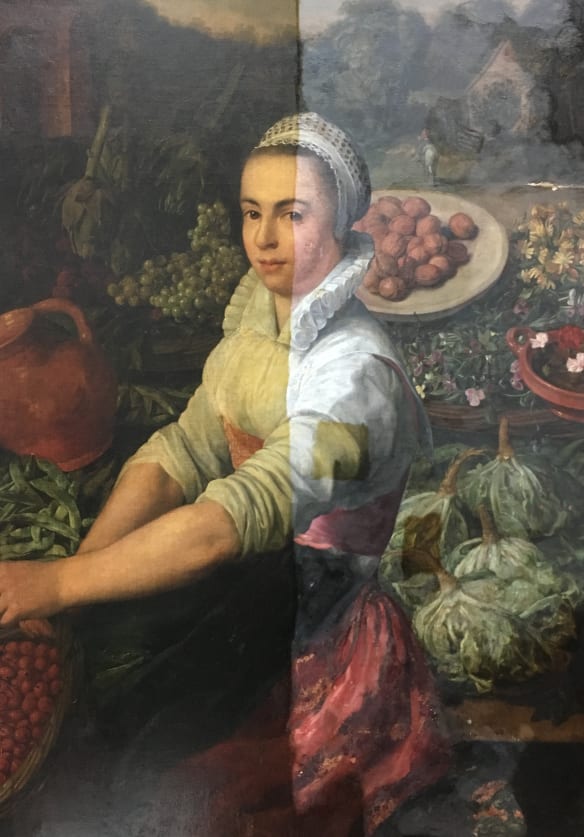JUDITH FEBRUARY: JACOB ZUMA’S ACTIONS ARE WORTHY OF OUR COLLECTIVE CONTEMPT
The
past few days in South Africa have been deeply distressing. Things seem to be
falling apart; the centre is not holding.
Former
President Jacob Zuma now finds himself behind bars
in an Estcourt prison. As the clocked ticked towards midnight last Thursday, a
few supporters dribbled around Nkandla. Zuma’s son Edward mumbled incoherently
into the camera. Finally, Zuma was arrested. The Constitution had withstood the
test of that pivotal moment.
We
saluted our Constitutional Court as Justice Khampepe delivered the strongly
worded judgment on behalf of the majority of the court. ‘Emotional’, Zuma and
his coterie of supporters cried in their attempts to discredit Khampepe. It’s a
trope used by men who seek to undermine women who threaten their worst
insecurities.
As
if to underline this, the Jacob Zuma Foundation tweeted a picture of six men,
including Zuma himself, Dali Mpofu, Thabani Masuku (both men, his legal
counsel) and Mzwanele Manyi with the caption: We are Team President Zuma.
President Zuma is us. We are President Zuma. Nothing ethnic here. #WenzenuZuma
Populism
at its best with a whiff of toxic masculinity for good measure - these are the
men behind Zuma’s reckless attempts to tear down the edifice of our
constitutional democracy. These unprincipled lawyers and others who speak on
behalf of Zuma are comfortable to weaponise gender, race, ethnicity, and poor
legal argument in defence of the indefensible.
It
is for this reason that a half-baked application for rescission of the ConCourt
judgment has been made, after all. It is also the reason Justice Mnguni gave
the application for stay of the warrant of arrest short shrift in the
Pietermaritzburg High Court on Friday.
The
latest lie is that Zuma is being ‘detained without trial’, even as his lawyers
are aware that he elected to walk out of the Zondo Commission and equally
cocked a snook at the ConCourt by refusing to participate in the proceedings
brought against him for contempt of court.
The
‘detention without trial’ mantra is a cheap attempt to whip up popular
sentiment by invoking painful and emotionally charged apartheid memories. Similarly,
Zuma’s lawyers warned of ‘another Marikana’ should the Pietermaritzburg High
Court not set aside the warrant for his arrest. Marikana was a painful and
shameful moment in our post-apartheid history. It diminishes that moment by
comparing it to Zuma’s arrest for willful contempt of our democratic processes.
To
be clear: Zuma is not a victim. In fact, his contempt for the rule of law is
worthy of our collective contempt. Now, finally faced with consequences for his
actions, his supporters have turned to fomenting violence. This violence has
now morphed into sheer criminality as malls and small businesses are looted in
parts of Gauteng and KwaZulu-Natal.
We
watched as people pulled up in cars and looted entire malls. There is much
depravity in South Africa, but surely we have reached a new low when a mosque
is burnt? All the while, Zuma’s acolytes like Manyi and Carl Niehaus tweet
pictures of violence or call for President Ramaphosa to resign. Manyi said the
quiet part out loud.
Given
that, it would seem inconceivable that this looting is not, in part,
orchestrated by certain political forces seeking to completely weaken the
President.
The
situation seems out of control and the Minister of Police, Bheki Cele, usually
so eager to enforce lockdown laws, was largely silent until Tuesday morning. It
begs the question, ‘why?’
We
have also witnessed a complete failure of intelligence to infiltrate
communities where looting is happening and to monitor WhatsApp groups and
social media. Zuma’s daughter openly incites violence on Twitter. This is a
country of no consequence.
The
violence and untrammelled looting have led President Ramaphosa to deploy the
SANDF as he is entitled to do in terms of s201 of the Constitution. Given the
failure of intelligence, it is unsurprising that there was a delay in putting
together a comprehensive response.
As
ever, the equally opportunistic Julius Malema, leader of the EFF, has said his
supporters will mobilise against troops on the streets. The EFF appears to be
forming an unholy alliance with Zuma’s coterie of radical economic
transformers, the so-called ‘RET’ brigade. There are many within Zuma’s family
and within and outside of the ANC who stand to gain from the violence being
fomented.
The
populists’ playbook is to destroy and sow chaos and confusion. And there is
plenty of that around.
In
all the chaos and confusion of violence and criminality, the Constitution
itself has come under threat. How do we protect and defend the Constitution
when many would seek to blame it for the ills in our society?
For
a while now, it has become easy and intellectually lazy for many to label our
constitutional settlement and Nelson Mandela himself as a ‘sell-out’ for his
role in negotiating South Africa’s transition. Zuma has been known to question
the very Constitution he helped negotiate, after all. In an environment of want
and degradation for millions of South Africans, it is easy to understand how
this argument could be exploited and how it could resonate. Yet, it is a view
ignorant of that historical moment and the sacrifices Mandela and countless
others made for our collective freedom.
Amid
this mayhem, the ConCourt is hearing Zuma’s application for rescission of
judgment. Mpofu must surely know his case is wafer thin? Yet he relies less on
legal rigour and precedent and more on a stealthy attempt to draw the ConCourt
into the scenes of violence and looting happening outside. There is no doubt
that part of the strategy is to intimidate the ConCourt into rescinding the
application for fear of further anarchy.
It
would be a sad day should our apex court succumb to the pressure of thuggery
and violence. Then, as Justice Khampepe said, the Constitution would not be
worth the paper it is written upon.
Had
Zuma been a leader with a jot of care for his country or the livelihoods of
those on the margins, he would have acceded to the rule of law and indicated as
much to his supporters. But his playbook is naked self-interest, and he has
long ago shown that he will quite easily put his own interests above those of
the country.
At
times of national crisis, leadership matters. This may well be the time to
remember again Mandela’s leadership at the moment of Chris Hani’s
assassination. It was Mandela’s act of leadership that pulled us back from the
brink. Amidst the strong emotion of the moment, Madiba addressed a tense nation
which may well have been on the brink of civil war that night.
And
who can forget Mandela’s statesmanlike speech to a 200,000-strong crowd in
Durban at the height of IFP-ANC violent clashes, when he said: “Take your guns,
your knives and your pangas and throw them into the sea. End this war now.” He
urged peace at a time when we thought peace was impossible – let alone a free
and fair election.
It
is this kind of leadership which is called for now, not only from Ramaphosa who
looks and sounds battle-weary, but from those within civil society, the media,
communities, political parties, business and religious organisations. We would
seek it from the governing ANC, but it is too divided and compromised to
provide truly wise leadership at a time such as this.
While
Zuma’s role in this sad moment for our country is plain for all to see, South
Africa will need to take a long and hard look at itself and its fault-lines
which have for so long been ripe for exploitation. In a country with such high
unemployment rate, specifically amongst the youth, and unsustainable levels of
poverty and inequality, South Africa’s tinder box was only ever going to need a
small flame. Add to this weak law enforcement and near non-existent police
intelligence and it’s easy for the genie to escape the bottle.
In
South Africa violence comes all too easily. As academic Nadia Davids said so
eloquently this week as part of a lament for the state we are in: “Violence is
South Africa’s 12th national language. A language built up carefully,
systematically, over hundreds of years in every possible space-personal,
political, public, individual and collective. It’s a language we need to stop
being so fluent in.”
Ernesto
Nhamuave, a 35-year-old Mozambican was burned alive during xenophobic violence
on the East Rand in May 2008 that spread across the country. He became known as
‘The Burning Man’. A burning man in a burning country. Levels of inequality
have simply increased since then and wanton violence has become almost everyday
- until it subsides and we all continue with our lives.
In
2015, the streets of Durban and surrounding townships were seething with anger
and violence as foreigners and locals battled it out. The government finally
stepped in to prevent a bloodbath in Durban, yet the response was largely
reactive. Then, the late King Goodwill Zwelethini was quoted as saying all
foreigners should return to the places they came from. At the time, the
government refused to speak out against these blatantly inciteful comments and
the king himself blamed the media for misinterpreting what he said.
As
with everything else in South Africa, the reasons for violence are complex.
Sometimes it has been driven by xenophobia, other times a rather more confusing
cocktail of anger, frustration and intolerance bubbling at the surface of our
society. We seem to be straining at the seams as the repercussions of deep
inequalities, our inability to bring about structural economic transformation post-1994
and the old baggage of the apartheid years come to haunt us.
In
countless works of research on local government and conflict in municipalities,
the same mantra is heard repeatedly: “They only come when we start to burn
things.”
We
have seen violent flare-ups in our society again and again, though nothing as
unpredictable as what we are seeing now. This time, of course, it is linked to
the rather more dangerous cause of a victim-politician and his coterie of
supporters who are fighting for self-preservation.
Added
to this the fact that Ramaphosa has a tenuous grip on some parts of the ANC
itself and that the state simply appears weak when it is faced with large-scale
looting and what is in effect economic sabotage.
But
the question remains, for how long still can we keep the majority of South
Africans on the margins of our society? Our futures, black and white, rich, and
poor, are intrinsically inter-linked. How do we start to build that inclusive
future and a new social compact as opposed to the same tired ideas of
reconstruction? The ANC has run out of ideas and is too busy dealing with its
internecine battles to be able to provide thought leadership. The far larger
conversation needs to be inclusive, and it needs to happen with urgency.
Our
towns and cities are mostly falling apart, and the COVID-19 pandemic has left
us in the perfect storm. State capture has hollowed out our institutions and
left them incapable and unresponsive. The recent Auditor-General report on
municipalities indicates just how broken local government is. Corruption is
endemic in many parts of the country.
It
is time that we implemented a few big ideas to combat poverty and inequality.
We simply cannot continue as we did before. This political crisis is a societal
crisis and demands more of us all, especially those in power. It also demands
more than well-intentioned talk about economic policy.
At
times of national crisis, citizens look to their leaders to articulate that
which is in the national consciousness. There is collective pain and trauma,
anger and frustration. But at such a time, citizens also want a plan of action
so that they know their lives and property will be protected from wanton acts
of criminality. Ramaphosa’s Monday night address was stilted and yet again,
behind a wooden podium with no interaction with the media thereafter. It is
abundantly clear that South Africa needs a new social compact, and urgently. If
Ramaphosa was waiting for a ‘break glass now!’ moment, this is it.
Pandora’s
box has been opened and he should simply expend the political capital he has.
To do so he will need to harness the overwhelming majority of South Africans
and social partners against the common ‘enemy’ - those who seek to destroy the
democratic state and endanger its citizens.
The
first agenda item would be to restore order and then start the grand project of
social reconstruction. Implementing a basic income grant would be a useful
starting point. Despite it all, the will still exists to fix what is broken in
our country.
We
either sink or swim together. The alternative, which we are seeing a glimpse of
at present, is anarchy. This is where we are. Our constitutional order is being
severely tested. Violence stalks the land and in the next days, may get worse
before things get better. The SANDF should, with restraint, defend and protect
the democratic order and the citizens of the Republic.
In
a sense, this was always going to be the denouement Zuma has sought all along.
While it will be difficult, we must meet this moment with clear-eyed vision and
with a will and a plan to build the inclusive future which our Constitution
demands of us. We cannot continue to lurch from crisis to crisis hoping for the
best.
Ours
is a country which demands much from those who call it home. It is bewildering
and bewitching in equal measure. Today we weep for all that we have lost in the
past days. Alan Paton could have written these words today:
“There
is not much talking now. A silence falls upon them all. This is no time to talk
of hedges and fields, or the beauty of any country. Sadness and fear and hate,
how they well up in the heart and mind, whenever one opens pages of these
messengers of doom. Cry for the broken tribe, for the law and the custom that
is gone. Aye, and cry aloud for the man who is dead, for the woman and children
bereaved. Cry, the beloved country, these things are not yet at an end. The sun
pours down on the earth, on the lovely land that man cannot enjoy. He knows
only the fear of his heart.”
Judith
February is a lawyer, governance specialist and Visiting Fellow at the Wits
School of Governance. She is the author of 'Turning and turning: exploring the
complexities of South Africa’s democracy'.
https://ewn.co.za/2021/07/15/judith-february-jacob-zuma-s-actions-are-worthy-of-our-collective-contempt







